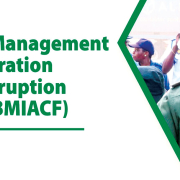|
Getting your Trinity Audio player ready...
|
Image: Flickr/GovernmentZA
By Kwazi Dlamini
Lack of will to deal with corruption cases at municipal level because they involve politically connected individuals remains a big hurdle for law enforcement agencies. This is according to the Special Investigating Unit (SIU), National Prosecuting Authority (NPA), and Directorate for Priority Crime Investigation (DPCI). The three agencies answered for the slow progression of Covid-19-related corruption cases before the parliamentary Cooperative Governance and Traditional Affairs portfolio committee.
This committee is responsible for oversight of the Department of Cooperative Governance and Traditional Affairs, Municipal Infrastructure Support Agency, the South African Local Government Association, and several other entities.
Committee members questioned the fact that no politicians are implicated in their findings, only municipal officials. The DPCI told the committee that it is difficult to prove the involvement of politicians in local government corruption, because municipal officials are responsible for administrative decisions; however, when there are allegations of politicians’ involvement, the DPCI and SIU will institute an investigation into those.
Directorate for Priority Crime Investigation
DPCI head Godfrey Lebeya told the committee that the agency is currently dealing with 121 local government investigations, of which 27 are awaiting decisions from the NPA. Meanwhile, it has enrolled 69 court cases. Lebeya highlighted that most of the cases under investigation are in municipalities in the Eastern Cape, KwaZulu-Natal, Western Cape, and North West.
Phindisile Xaba-Ntshaba of the ANC offered a critical comment, saying the agencies were selective in the way they chose and prioritised corruption cases, whereas neutrality and transparency is needed when investigating. She alluded to instances whereby the agencies set aside irregular contracts without further action, while others are pursued further – for instance, Bitou Local Municipality and Knysna Local Municipality, where the agencies have not acted against certain individuals implicated in wrongdoing. Instead, the individuals are moving between municipalities to avoid accountability. Corruption Watch has investigated both in the recent past.
Because whistle-blower protection is a priority, Lebeya said that the DPCI could not share much information on ongoing cases, making examples of witnesses who have been targeted and lost their lives during investigations.
“DPCI cannot publicly disclose its investigations until it has made arrests. The information could be disclosed to the committee during a closed session and the DPCI will look into how it can enhance its information in the report so that it does not only provide statistical information.”
Lebeya also refuted the allegations of selective investigations, saying that all DPCI members take an oath before a judge and conduct investigations without fear, favour or prejudice. Their approach is apolitical, he maintained.
Some allegations come from media reports and investigations, Lebeya added, and the complexity that comes with these is that the DPCI has to verify the correctness of these allegations and only then can it institute an inquiry or open a docket and refer cases to the relevant agency. Lebeya said that 17 individuals have been jailed for Covid-19 transgressions, while another 100 accused have been processed in court and these are taking time because DPCI is working with other agencies.
Special Investigating Unit
The SIU’s Advocate Andy Mothibi echoed the DPCI’s response, saying that it investigates every case brought to it with credible evidence, and politicians are not immune to these investigations. He cited the SIU’s findings against former Eastern Cape Health MEC Sindiswa Gomba for her role in corruption related to former president Nelson Mandela’s funeral.
Mothibi mentioned that the SIU receives pushback from officials not wanting to co-operate with investigations. In such cases, the SIU lays criminal charges against the officials. He said this was to indicate that no one is above the law.
Mothibi also assured the committee that the SIU continues to do its work without any prejudice and it does not selectively investigate matters. He added that it has concluded the investigations on the Gauteng school sanitising tenders and the outcome was that the contracts be set aside.
He did concede that disciplinary action is often not implemented fast enough and in this instance, the SIU is willing to work with the committee.
Mothibi expressed the SIU’s willingness to work with the committee to ensure that all accounting officers who failed to implement its recommendations are held responsible. The organisation agreed that disciplinary action is not implemented fast enough, and there is room for improvement.
National Prosecuting Authority
NPA director Advocate Shamila Batohi shared her concerns with the committee about the idea of sharing information on a public platform. This can compromise cases, she said, and put the lives of witnesses at risk. On behalf of the NPA, she also denied the allegations of selective prosecution saying it does not target certain individuals, but follows the evidence.
“Once a matter is fully investigated the NPA will prosecute irrespective of who the individual is, and in line with its constitutional mandate. The Anti-Corruption Task Team sets the criteria which guides the NPA on priority cases.”
She emphasised that as a law enforcement agency, the NPA is apolitical. It investigates and prosecutes based on evidence, and cannot get involved in the matters of political parties. Rather, it must follow its constitutional objectives.
She also did admit that certain matters take longer to prosecute because it depends on the complexity of each matter and several other factors.
More support for enforcement agencies
Committee chairperson Fikile Xasa concluded the meeting with a statement that Parliament must strengthen its responsibility of oversight on non-actions of the Executive, and provide more support to law enforcement agencies in the fight against corruption in local government.
“All agencies should be allowed to conduct their work without fear, favour or prejudice.”
Another point to focus on, said Xasa, is the tendency for officials to resign from their positions before they have been charged. More discussion around is needed. He also said the committee would place greater focus on oversight on the implementation of SIU reports and consequence management.
Finally, the committee expressed a willingness to assist with public education on the efforts taken by the agencies, and to mobilise society in supporting the agencies’ efforts in fighting corruption.








